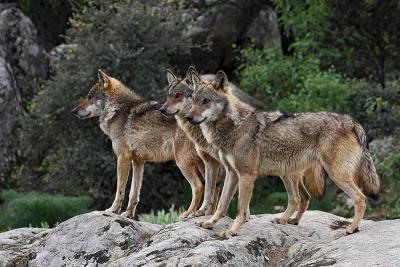Valle d'Aosta council approves law allowing killing of wolves

AOSTA - Much to the consternation of several environment groups in Valle d'Aosta, the region's council has approved a law to allow for the killing of wolves in the region, for the "defence of people and animals."
The law was unanimously approved on Thursday by all 35 of the region's councillors. It allows for, in particular cases and with the authorisation of the Higher Institute for Environmental Protection and Research (ISPRA) and the Environment Ministry, the capture and killing of wolves (of the genus canis lupus) considered to be dangerous.
Davide Sapinet, Valle d'Aosta's Alderman for agriculture, said, "we want to extablish a project to protect our businesses, our mountain pastures, our farmers."
The law was proposed by the opposition parties in the council, the League and For Autonomy (Pour L’Autonomie). Among those who pushed for it was the former President of the alpine region, Augusto Rollandin, now a member of For Autonomy. He said, "this law must not be interpreted as a wolf hunt, but as a just defence of people and animals taken by wolves, even in meadows near settlements and in mountain pastures.
Daria Pulz, the former Regional Councillor, said however that it is a "law which is not applicable until the wolf management plan is adopted and implemented, which will serve, in accordance with the wishes of its promoters, to divert attention from the real problems of the sector, namely bureaucracy, croneyism, lack of planning and protection of small and medium-sized producers". She added that it will only to serve to create a "climate of alarm towards a protected animal fundamental for the ecosystem."
Denis Buttol, the regional president of Legambiente (an environmental organisation), called it a "law full of holes, because it does not specify the hierarchies of the various actions to be taken in order to request the killing of wolf specimens that are considered dangerous." Buttol argued that the way forward for the region was the 'Wolfalps' project, which researches and promoted the safe, and possible, coexistence between humans and wolves.
Wolves almost completely disappeared from Italy during the 19th and early 20th century due to hunting and the fast expansion of farming, however a concerted effort by conservationists beginning after World War Two has brought the numbers back up to around 3,000 around Italy (about 300 of these in alpine areas). During the coronavirus lockdowns there were several reports of wolves begining to stray closer to human settlements. Though wolves don't generally attack humans, protecting livestock from wolves is a full-time concern for farmers.
ol


